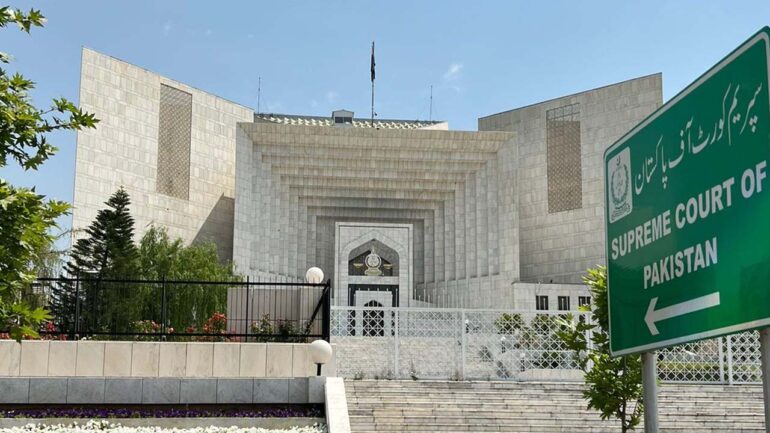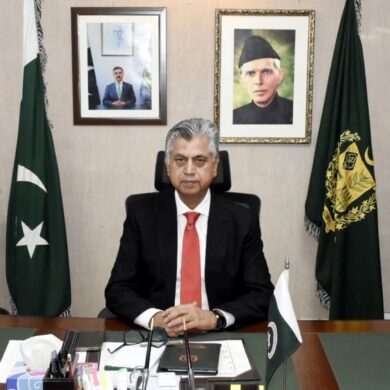The Supreme Court’s today hearing on the Practice & Procedure law has witnessed repeated disruption, prompting Chief Justice of Pakistan Qazi Faez Isa to appeal to his fellow judges for uninterrupted arguments from the counsels.
The SC convened a 15-judge full court on Tuesday to hear petitions challenging the recently enacted Supreme Court (Practice & Procedure) Act, 2023.
The law, which was passed by the parliament in April, has faced vehement opposition from various quarters, with petitioners arguing that it curtails the powers of the Chief Justice.
Headed by Chief Justice of Pakistan Qazi Faez Isa, the bench included eminent judges such Justice Sardar Tariq Masood, Justice Ijazul Ahsan, Justice Syed Mansoor Ali Shah, Justice Munib Akhtar, Justice Yahya Afridi, Justice Aminuddin Khan, Justice Sayyed Mazahar Ali Akbar Naqvi, Justice Jamal Khan Mandokhel, Justice Muhammad Ali Mazhar, Justice Ayesha A. Malik, Justice Athar Minallah, Justice Syed Hasan Azhar Rizvi, Justice Shahid Waheed and Justice Musarrat Hilali.
The Act proposes substantial amendments, including the formation of committees comprising three senior judges to handle constitutional matters of public importance and suo motu notices.
During the hearing, lawyers representing different parties were repeatedly interrupted by the judges, prompting Chief Justice Isa to intervene. He urged his fellow judges to allow the lawyers to complete their arguments before questioning them, emphasizing the importance of thoroughly understanding the presented arguments.
MQM-P’s lawyer, Faisal Siddiqui, argued for the dismissal of the petitions on merit. He contended that the petitions against the law were maintainable but should be rejected based on their substance.
Siddiqui’s arguments triggered a robust debate among the judges. Justice Ijazul Ahsan emphasized that the right to appeal should be provided by the Constitution, not sub-constitutional legislation.
Chief Justice Isa questioned the political context of the law, asking if any party had opposed it.
Siddiqui informed the court that the PTI had opposed the law in the Senate.
Justice Athar Minallah stressed the importance of separation of powers, highlighting the Parliament’s authority to legislate.
The crux of the debate revolved around the power dynamics within the Supreme Court.
Siddiqui argued that the law did not grant Parliament undue control but instead ensured access to justice.
Chief Justice Isa questioned the concentration of power in the office of the Chief Justice, raising concerns about the potential “logjam” if the Chief Justice refused to convene a full court.
Justice Naqvi injected a moment of humor, likening the situation to a cricket team with multiple captains, emphasizing the need for clear leadership.
After Siddiqui concluded his arguments, Attorney General for Pakistan Mansoor Awan began presenting his case.
However, the Chief Justice suggested resuming the hearing the next day, to which Awan agreed. The proceedings were adjourned until Wednesday morning.



